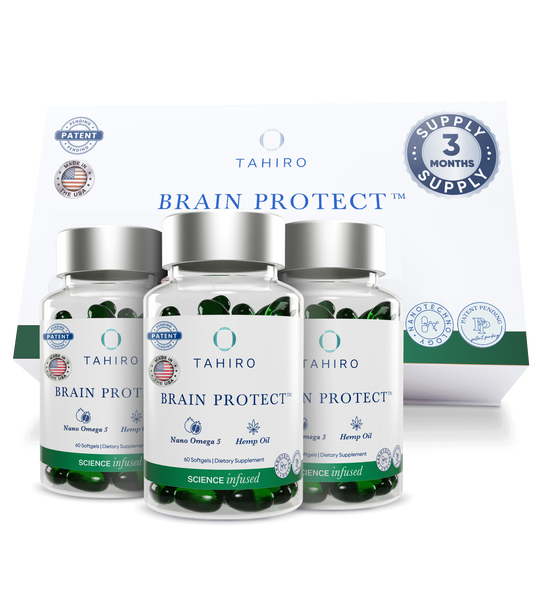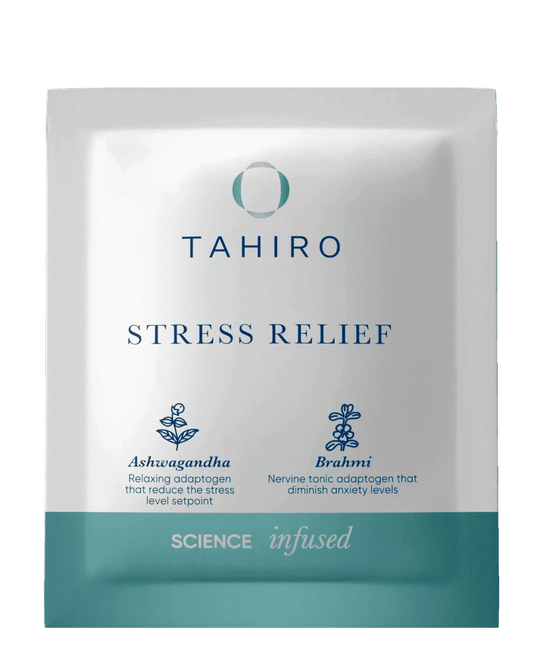Anxiety is a prevalent mental health concern that affects millions of people worldwide. In fact, according to the World Health Organization (WHO), in 2019, over 301 million people suffered from anxiety (1).
While there are several treatment options available, many seek natural remedies to help them manage their anxiety. Pomegranates have gained attention due to their potential to alleviate symptoms of anxiety.
In this article, we’ll examine the science behind pomegranates and anxiety, determine their benefits for anxiety, and discuss how to include them in your diet.
Is Pomegranate Good For Anxiety and Depression?
Anxiety is a complex emotional state characterized by feelings of worry, fear, and apprehension (2). It can be triggered by several factors, such as stress, genetics, or other underlying health conditions.
Many people wonder whether pomegranates, with their rich nutritional profile and antioxidant content, can be helpful additions to their diets when dealing with anxiety.
Now, while pomegranates are not a magical cure for anxiety, the good news is that there is some evidence to suggest they may offer certain benefits for people with symptoms of anxiety (3).
Benefits of Pomegranate for Anxiety
There are several health benefits to pomegranates, but one of the biggest ones is its role in helping manage anxiety symptoms. Here are some of the benefits of pomegranates for anxiety.
-
High in antioxidants. Pomegranates are known for their high levels of antioxidants, especially polyphenols like anthocyanins and ellagic acid (4). These antioxidants can help protect the body’s cells from oxidative stress, which can be linked to several mental health issues, including anxiety. By reducing oxidative stress, pomegranates may help improve overall wellness.
-
Anti-inflammatory properties. Chronic inflammation is recognized as one of the factors that can promote anxiety (5). Some studies suggest that pomegranate’s anti-inflammatory properties can help mitigate the symptoms of anxiety (6).
-
Brain health. Pomegranate may also have a crucial role in supporting brain health. The cognitive benefits associated with pomegranate polyphenols may have implications for anxiety management. A healthy brain is more likely to better cope with stress and anxiety.
-
Stress reduction. Evidence suggests that pomegranate extract may help lower cortisol levels, commonly known as the stress hormone (7). Lower cortisol can lead to reduced feelings of anxiety, making pomegranate an effective tool for stress management.
-
Increased serotonin. While pomegranate is not a direct serotonin booster, there is some evidence to suggest that it may play a role in supporting serotonin production (3). Pomegranates contain tryptophan, an amino acid that is a precursor to serotonin. As a result, it may increase serotonin levels (happy hormone).
However, it’s important to approach pomegranate as a complementary strategy in managing anxiety. If you are struggling with anxiety, make sure to seek professional help. Therapy, medication, and lifestyle changes can all help deal with anxiety disorders.
How Do You Include Pomegranate In Your Diet To Deal With Anxiety?
Including pomegranates in your diet can be both delicious and nutritious. As you’ve seen, there is a lot that pomegranate has to offer. Whether you prefer them fresh, juice, or in various recipes, pomegranates can be a versatile addition to your meals and snacks.
Here are some tips on how to include pomegranates in your diet.
-
Fresh pomegranate. This is the simplest way to enjoy pomegranates. Cut the fruit in half and gently tap the back with a wooden spoon to release the seeds. You can sprinkle them on your yogurt, oatmeal, or salads.
-
Pomegranate juice. Look for 100% pomegranate juice without any added sugars or preservatives. You can drink it alone or mix it with other juices.
-
Smoothies. Add fresh pomegranates (or juice) with other fruits to create the ultimate health-boosting smoothie.
-
Pomegranate salsa. Combine pomegranate seeds with diced tomatoes, onions, cilantro, and some lemon juice for a delicious salsa. It can be a great topping for your favorite chicken or fish recipe.
-
Pomegranate dressing. Create a homemade salad dressing by blending pomegranate juice with olive oil, honey, vinegar, and your favorite herbs and spices.
-
Pomegranate infused water. Drop some pomegranates into your water bottle for a subtle infusion of flavor. This is a great way to help you increase your water intake.
-
Pomegranate supplements. If you prefer a more concentrated form, several pomegranate supplements are available in capsule or powder form.






